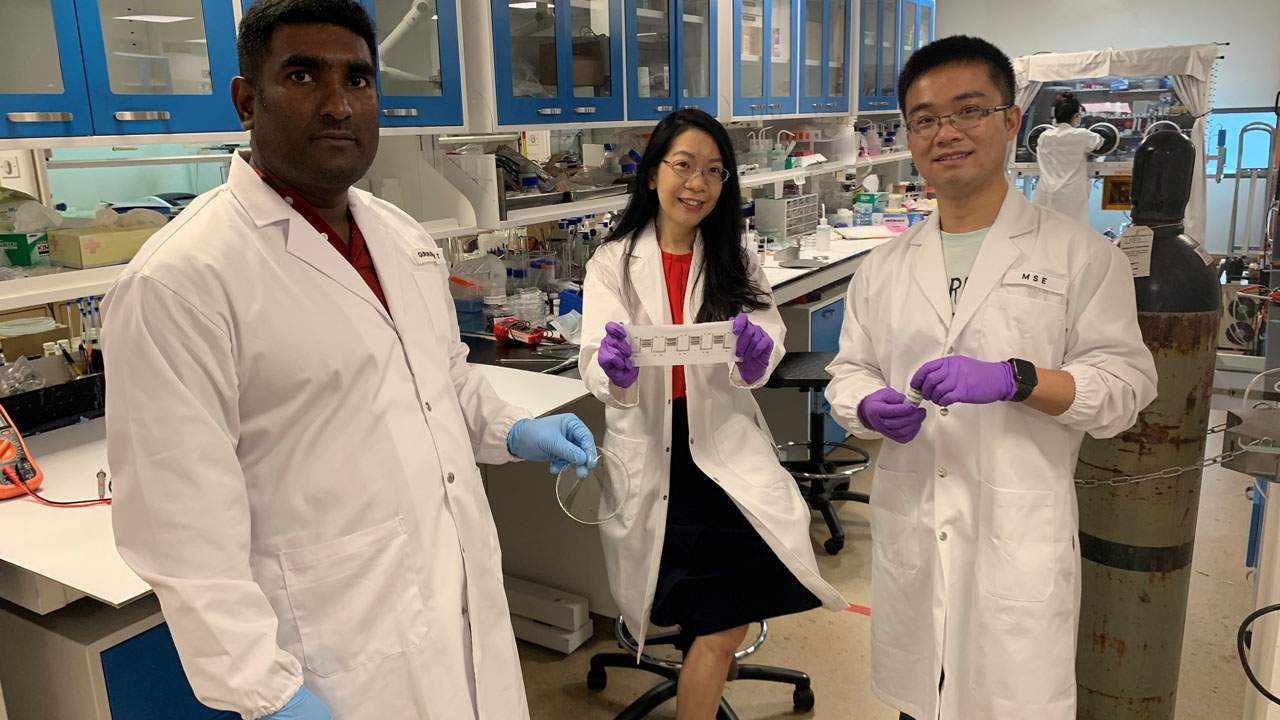A flexible battery recharged by sweat is unveiled

While some people are thinking about how we could sweat less, others are thinking about how to use sweat for beneficial purposes.
Researchers at NTU Singapore have developed a new type of battery that could be ideal for future wearable devices. The battery stretches and gets the energy it needs to work from sweat. The battery is soft and is described as flat, like a bandage. The 2cm x 2cm cell is attached to a flexible and sweat-absorbent textile that can be easily incorporated into wearable devices, including smartwatches, medical devices, etc.
The developers conducted a test in which the tester wore the battery on his wrist and rode a stationary bike for 30 minutes. During this time, the user generated 4.2 volts of output power and 3.9 mW, which is enough to operate a commercial temperature sensor and transmit data from the sensor to a smartphone via Bluetooth. The battery is environmentally friendly, containing no heavy metals or harsh chemicals like other modern batteries.
The researchers claim to have created a battery that will provide electronic wearable devices with a guaranteed source of energy derived from the human body. The team expects that the battery will be able to power a wide range of devices. In addition, since the new battery does not contain harsh chemicals inside, there is no fear of acids or other corrosive substances spilling out of a ruptured battery onto the user if damaged.
NTU created the battery using a printer ink containing silver flakes and hydrophilic polyurethane acrylate (HPUA). When the silver flakes come into contact with sweat, the chloride ions and acidity of the sweat cause the silver flakes to combine and increase their electrical conductivity. The chemical reaction also leads to a current between the electrodes.
The stretchable textile used absorbs relatively large amounts of sweat, which allows for a constant source of energy, even if the person does not perspire much. Another advantage is that, according to the authors, the battery will be more durable than existing ones.
Full technical description available at (PFD, 2 MB)
Source: ntu